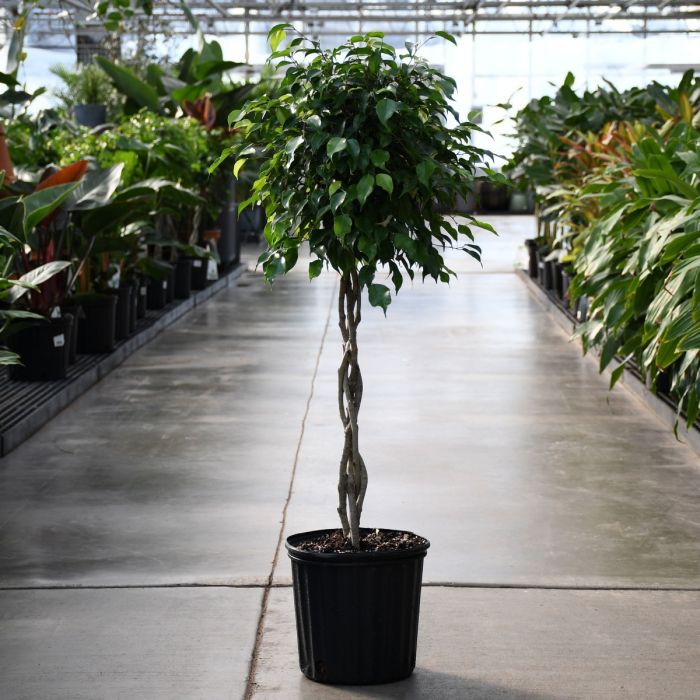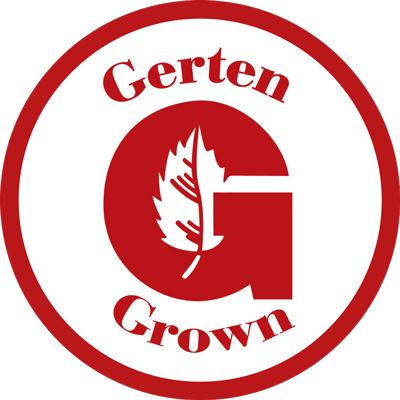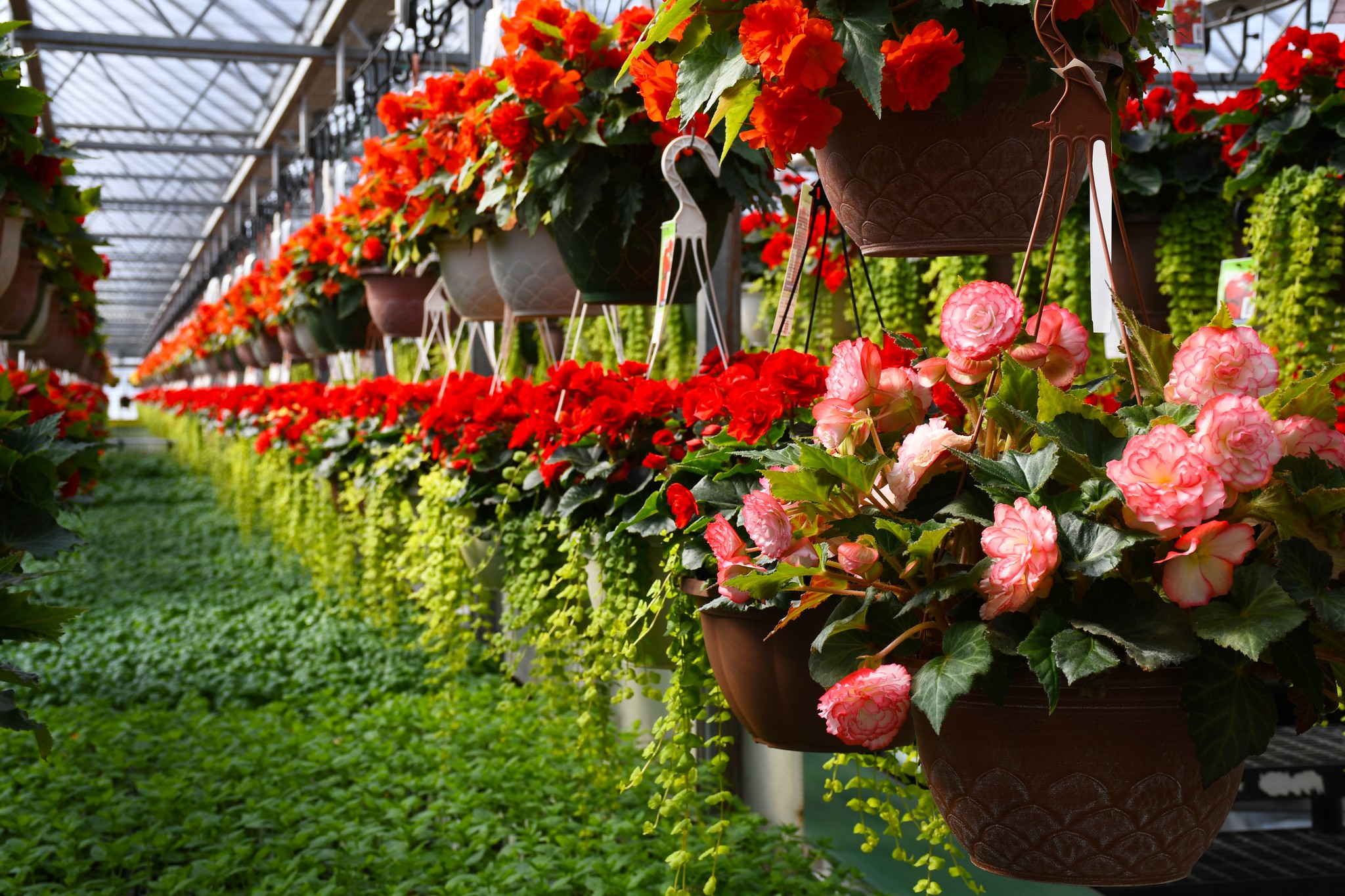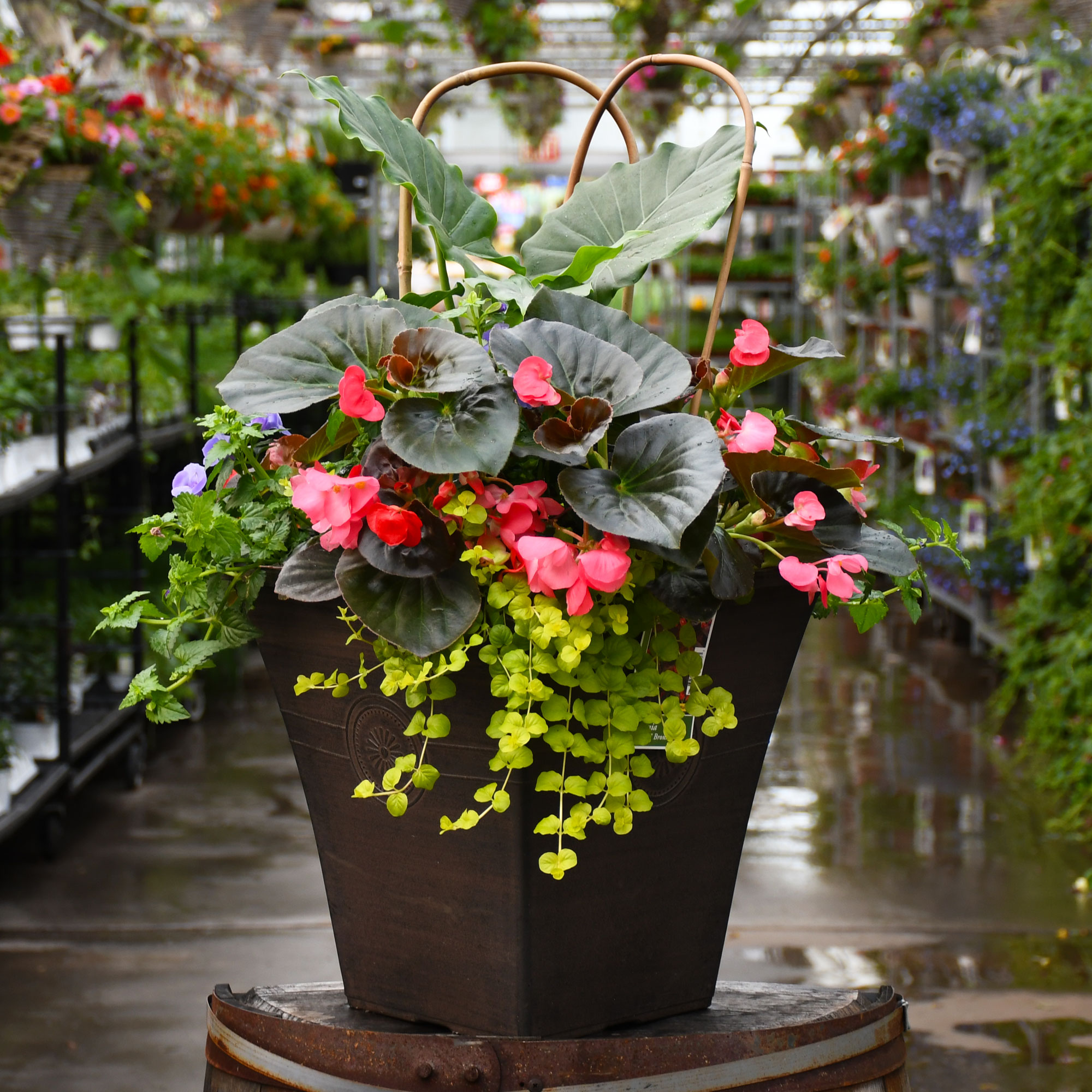Ficus Benjamina, Braid


Out of stock
Availability updated daily- Sun Preference
- Bright Direct
Description
Ficus benjamina
Also known as the weeping fig, This plant is known for its longevity, living between 20 to 50 years. This elegant plant has slender branches that arch gracefully from a light gray trunk, with dense, glossy dark leaves. Weeping figs grow easily indoors in containers filled with soil-based potting mix and positioned in bright indirect light or in sunny areas that get some afternoon shade.
Direct from the Grower
When you see the Gerten Grown logo on our annuals, you know you're getting a fresh plant directly from our greenhouse. We've been perfecting our growing process for over four generations and pride ourselves on providing local quality and freshness to our customers. Better pricing on better quality plant material, that's Gerten Grown.
Details
Keep the plant steadily moist, but do not allow it to sit in water or it will drop leaves and may develop root rot.
Any good, fast-draining potting soil will likely do. Weeping figs do not require soil that is especially high in nutrients or organic matter. If repotting, use a soil-based potting soil that contains perlite, sand, and vermiculite for improved drainage.
Trimming ficus trees is necessary if the plant is touching the ceiling or you want to make it smaller or shape it. Timing is important: Prune when the plant is no longer actively growing. Most ficus plants are active in spring and summer, with growth diminishing in fall, and by winter the plant has gone into dormancy and is less susceptible to injury from pruning.
More Information
| Common Family Name | Ficus |
|---|---|
| Sun Preference | Bright Direct |


